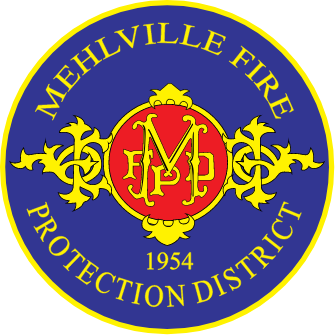National Poison Awareness Week: Poisoning Safety Tips
 According to the National Capital Poison Center, over 2 million people each year report they or someone they know has been poisoned. Poison comes in many different forms. Carbon monoxide leaks, drug overdoses, snake bites, even too much alcohol can lead to poisoning. Many substances are poisonous in high doses, while others take only a small amount to cause lasting effects. With Poison Awareness Week occurring from March 16-22, we want to highlight the signs that someone is poisoned and steps you can take to assist them.
According to the National Capital Poison Center, over 2 million people each year report they or someone they know has been poisoned. Poison comes in many different forms. Carbon monoxide leaks, drug overdoses, snake bites, even too much alcohol can lead to poisoning. Many substances are poisonous in high doses, while others take only a small amount to cause lasting effects. With Poison Awareness Week occurring from March 16-22, we want to highlight the signs that someone is poisoned and steps you can take to assist them.
What Factors Determine Poison Emergency Aid?
How you treat poison victims depends on their symptoms, age, and whether you know what caused the poisoning or not. If you believe someone you know has been poisoned or is currently suffering from poison, call the Poison Help line at 800-222-1222 in the general United States or contact the Missouri Poison Control to get a better idea of how you can assist. Poison control centers are vital resources around poison information and can guide you through the identification and treatment steps while emergency responders arrive to help.
When Should I Call Emergency Services?
There are a variety of signs that someone has been poisoned to watch for. If a person is:
- Drowsy or unconscious suddenly.
- Having difficulty breathing or stopped breathing.
- Having seizures.
- Uncontrollably restless or agitated.
- Known to take medicine or substances that may lead to accidental overdoses.
These warning signs may be indicative of poison, especially if they have recently ingested something to your knowledge. In these instances, call 911 or your local emergency number to get the emergency aid as quickly as possible. Call Poison Help or Missouri Poison control if a person is thought to be poisoned but currently stable with no symptoms or if they are going to be transported to a local emergency department.
Be prepared to describe the person’s symptoms, age, weight, and other pertinent medical information that could help identify the poison and any potential effects. Try to find out how much was ingested and how long ago the person was exposed to the poison. If possible, have the pill bottle, medicine package, or other suspected container on-hand to describe to the first responder or person at the poison control center.
What Poison Symptoms Should I Be Looking For?
Poisoning symptoms can be tricky since many mimic other conditions like seizures, alcohol intoxication, or strokes. Symptoms may include:
- Burns or redness around the mouth and lips.
- Breath smelling like chemicals, such as paint thinner or gasoline.
- Confusion or altered mental state.
- Difficulty breathing.
- Drowsiness.
- Vomiting.
If you suspect poisoning, be alert for clues such as empty pill bottles or packages, burns, odors, stains, or nearby objects. If the victim is a child, consider that they may have taken prescription medicine or swallowed something like a battery.
Try to stay calm and assess the situation. If they are capable, try to discern the cause of the poisoning from them. Otherwise, use context clues nearby combined with the symptoms to reach a determination or approximation.
What Type of Poison Treatment is Effective?
Until help arrives, you have a few options at your disposal to assist the victim, including:
- Remove the remaining poison from the person’s mouth. If the suspected poison is a household chemical, read the container label carefully for instructions around accidental poisoning.
- Remove any contaminated clothing using gloves. Rinse the affected skin for 15-20 minutes in a shower or with a hose, being careful not to touch it yourself.
- If poison is spilled in the eye, gently flush it with cool or lukewarm water for 20 minutes or until help arrives.
- If a battery was ingested, especially by a child, they are in danger of it getting stuck in the esophagus and causing severe tissue burns. Take the victim to get emergency X-rays immediately so professionals can handle the battery removal.
- If the poison was inhaled, such as excessive paint fumes or carbon monoxide, get the person into fresh air as soon as possible.
- If a poison victim is vomiting, turn their head to the side to prevent choking. Do not lay them fully on their back with their face up, as the vomit could get stuck in their throat and cause them to choke.
- If the victim shows no life signs like moving, breathing, or coughing, begin to perform CPR.
Providing Rapid Poison Treatment to Those in Need
Mehlville Fire Protection District wants to ensure you are safe. If you believe you or someone you know has ingested something poisonous, like a date rape drug, carbon monoxide, or beyond, call us. Our team will be there as fast as possible to help you assess the situation and provide poison treatment immediately. For those who are victims of drug-related poisoning like an opioid overdose, we provide narcan to bring them back to consciousness so we can provide aid. Don’t wait, call 911 at the first sign of trouble and we will be on the way.

